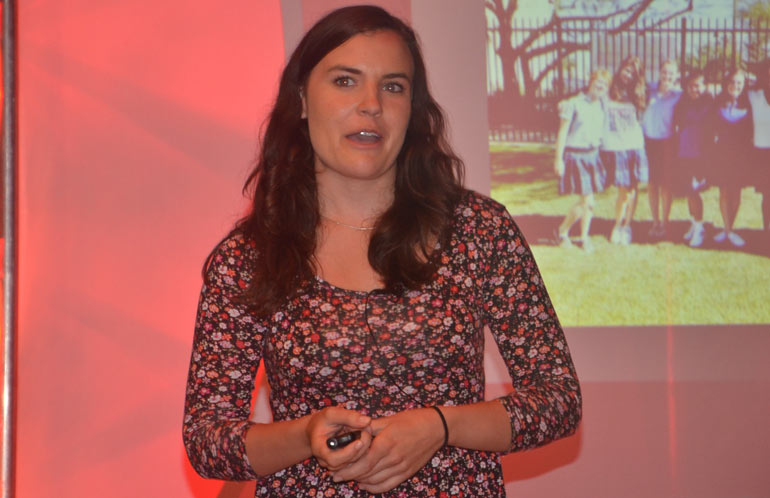 One of the hardest but most exciting things about being a young entrepreneur, first-time business owner or even a startup manager is the hiring process. But there are a few things you have to think about before green-lighting a new startup employee, especially in the earliest stages of starting up.
One of the hardest but most exciting things about being a young entrepreneur, first-time business owner or even a startup manager is the hiring process. But there are a few things you have to think about before green-lighting a new startup employee, especially in the earliest stages of starting up.
Here are 3 questions to guide you:
1. Do you really NEED another employee?
When you’re first starting out, you’re hiring someone for one of two reasons: (1) because you have pushed your own limits of how much you can work in a day (aka you’re going insane by working so much), or (2), the person you’re hiring has a skill that you simply don’t have and the time spent learning that skill would not be worth it for your business.
Think of yourself — how many hours you put in, how much work you do to spur your business or the business you’re working for. Now duplicate yourself. Is there actually enough work to be done that there could be a clone of you working simultaneously and not be bored or off-task throughout the day?
And if you simply don’t have a skill needed, rethink that aspect of your business. Is there anyone else already on the team that has that particular skill? Is that task that you think needs to get done absolutely core to your business? If yes, then hire. If not, then hold off until it’s absolutely necessary.
2. How do you hire? Immediately, or a trial period?
Companies bring new hires onto the team in different ways. Some startups tend to hire people like developers on a Friday as salaried employees, and ask them to be at work on Monday — mostly because their skill set is definite and because their job takes place in a space that needs to be confined. (We can’t have our engineers working from Starbucks while writing all of our code to improve security on our site.)
Hiring business teams works a little bit differently. Many of these jobs rely on longer-term objectives and relationships that take time to build, combined with some sort of measurable ROI. At MySocialCloud, we help our employees transition from previous activities (working at another company, going to school, unemployment) to working on our team with a two-week “trial period.”
We give them a couple of tasks and some actionable items for the two weeks. They can choose how and when they go about accomplishing the tasks by the set date. After the two weeks, we go through an evaluation process: Did they complete the actionable tasks? How well were they completed? Did they go above and beyond? Did they, as ambitious people who know it takes more effort to work at a startup, take the initiative to add their own tasks to that list to help spur the business?
If all of these tasks are completed at a level that exceeds your expectation, it’s time to hire!
Pro tip: Interview A LOT of people. Look at a lot of different candidates. At the very least, it gives you a perspective of who NOT to hire, which helps you hone in on the qualities and skills of a person who truly fits on your team.
3. Do you offer equity and if so, when/how much?
When it comes to equity in a new company, there are two main pitfalls to avoid.
One is the overly generous mentality. There are some first-time founders who hand out equity for their startup like nobody’s business. They give equity to every new employee, and anyone who has helped them with advice or getting a meeting with an important person. DON’T do this! Equity at a startup is worth next to nothing, and the only way it becomes something is if you make it something. Only give it to people who really contribute (e.g. another co-founder, a technical lead on your team, etc.). And don’t forget to make it vesting.
The flip side is the “hoarding” mentality. These are the founders who know for a fact that their business is worth bazillions of dollars and they want to have it all. DON’T be this person, either. As mentioned above, startup equity means nothing unless your team makes it worth something — you can’t build a business by yourself.
You do need some people on your team to have equity (maybe not all of them, but definitely some of them). At the very least, it motivates them to work harder knowing they have a large potential payout once you reach your goals.
Stacey Ferreira co-founded MySocialCloud, a technology startup that allows people to store their usernames and passwords for all their online websites for auto-login and share websites with friends easily, during her senior year of high school with her brother, Scott. When she was just 18, she raised a seed round of funding of just under $1 million from Sir Richard Branson and Jerry Murdock.
The Young Entrepreneur Council (YEC) is an invite-only organization comprised of the world’s most promising young entrepreneurs. In partnership with Citi, the YEC recently launched #StartupLab, a free virtual mentorship program that helps millions of entrepreneurs start and grow businesses via live video chats, an expert content library and email lessons.
Check out the hiring for your rockstar panel at everywhereelse.co The Startup Conference, EE14, Early Bird tickets and booths still available.







